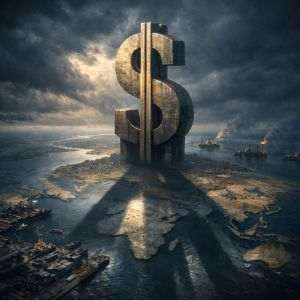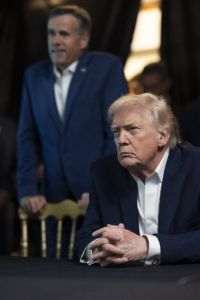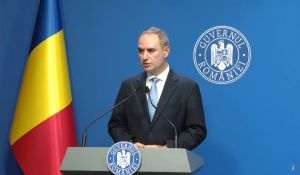South Korean markets fell yesterday as pressure mounted on President Yoon Suk Yeol to resign after he imposed and then lifted martial law within hours.
The Kospi stock index fell 1.4% to 2,464 points at the end of the day, while the Kosdaq fell 2% to 677.20. Shares of home appliance maker Samsung Electronics Co. fell 0.9% to 53,100 won, while those of automaker Hyundai Motor Co. fell 2.6% to 209,000 won. Shares of financial holding company KB Financial Group Inc. fell 5.7% to 95,400 won.
Amid concerns of financial instability, the Bank of Korea said after an emergency board meeting that it would boost short-term liquidity and implement measures to stabilize the foreign exchange market as needed. It will also make available any special loans needed to inject funds into the market.
Earlier, Yonhap news agency reported that the country's top financial regulator was ready to inject 10 trillion won ($7.07 billion) into a stock market stabilization fund at any time to calm investors.
Meanwhile, South Korea's foreign exchange authorities are suspected of selling U.S. dollars in the onshore market on Wednesday morning in an effort to limit the won's decline, according to dealers quoted by Reuters.
South Korea's 10-year government bond yields have fallen for 13 days and were trading at 2.720 yesterday.
Other Asia-Pacific markets fell yesterday, amid the events in South Korea. Japan's Topix index fell 0.5% to 2,740.60 points, mainland China's CSI 300 - 0.5% to 3,930.56 points, Hong Kong's Hang Seng - 0.02% to 19,742.46 points. Australia's S&P/ASX 200 fell 0.4% to 8,462.60 points.
• Alvin Tan, RBC Capital Markets: "The Won Could Depreciate Further"
The South Korean won could fall further in the coming months, trading at 1,450 to the dollar, despite the Bank of Korea's efforts, said Alvin Tan, head of Asia forex strategy at RBC Capital Markets. "Domestic political turmoil will add to the bearish sentiment surrounding the Korean won, although slowing economic growth and the U.S.-China trade war will likely be the biggest drivers next year," he told CNBC.
The won was trading at 1,416.94 per dollar yesterday, recovering from a sharp overnight drop that took it to its weakest level since late 2022.
Rob Carnell, ING's regional head of Asia-Pacific research, was quoted by Reuters as saying: "In the short term, the won will be hurt. There is a terrible structural context, the domestic economy looks weak, the central bank is likely to step in and do more than previously expected and on top of that, there is a bad political situation. The fact that the dollar generally looks stronger than everything else by default almost creates a perfect storm."
• David Riedel, Riedel Research: "Political Turbulence Will Eroded Investor Confidence"
The political turmoil in South Korea will erode investor confidence for a long time, says David Riedel, founder and chairman of Riedel Research, quoted by CNBC, noting: "It will take some time for long-term investors to have the confidence and comfort to return to South Korea, in a substantial way." In his opinion, President Yoon Suk Yeol's move to impose and later lift martial law is "inappropriate" and "poorly planned."
David Riedel believes that nuclear energy, cosmetics and defense will be among the sectors insulated from the ongoing political uncertainty in South Korea.
Recall that South Korean lawmakers yesterday called on the country's president to resign, risking impeachment. Opposition parties in South Korea's parliament have filed an impeachment motion against President Yoon Suk Yeol, following his failed attempt to impose martial law.


























































